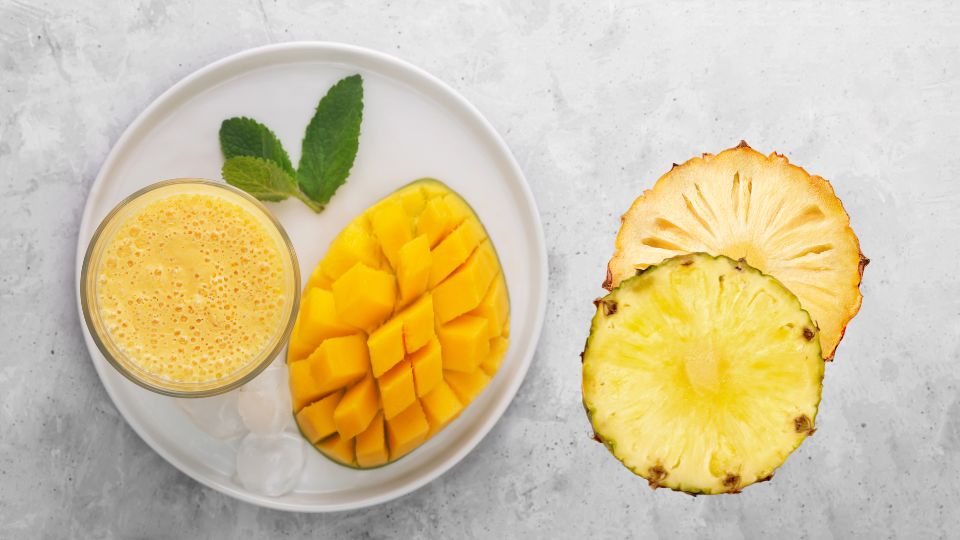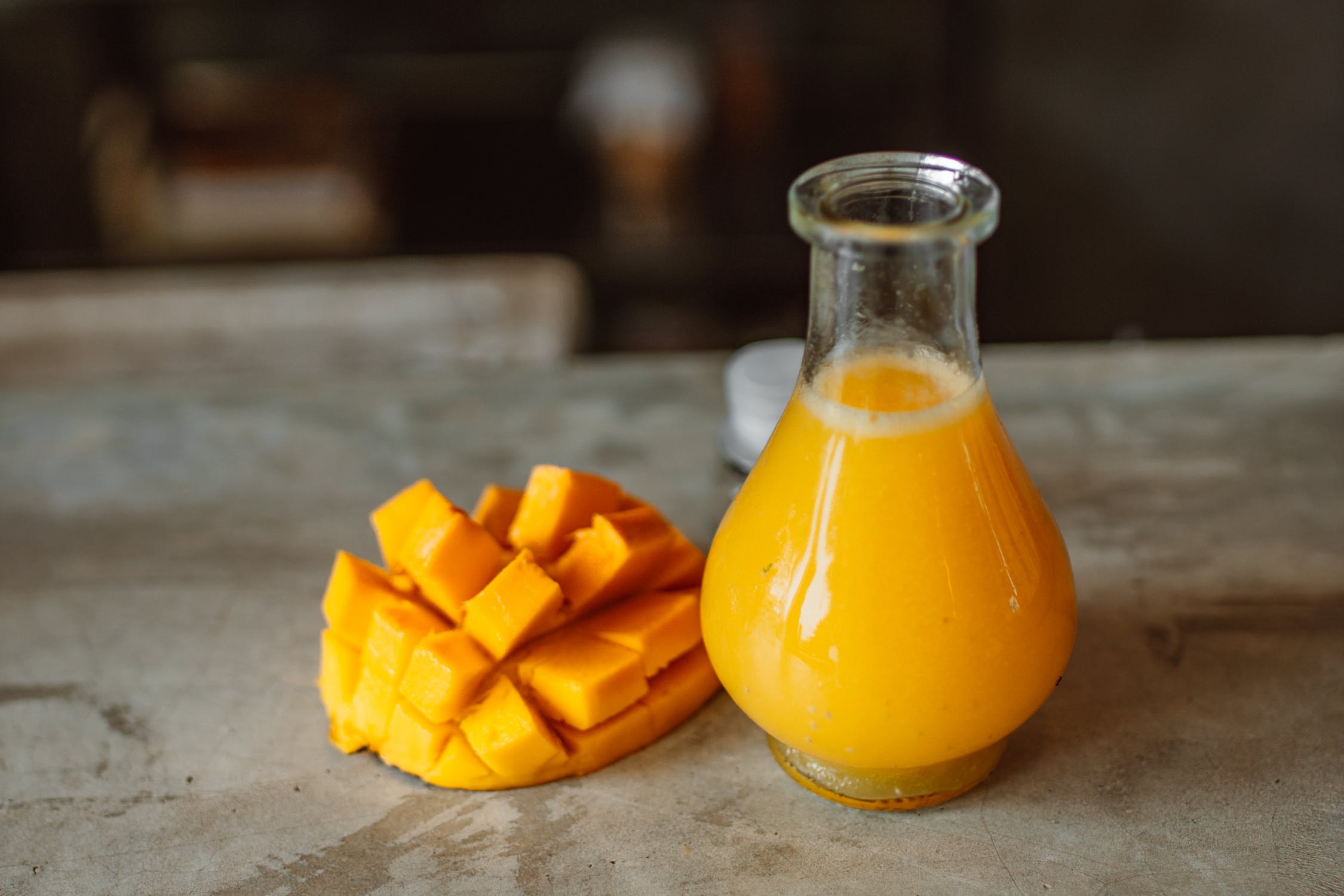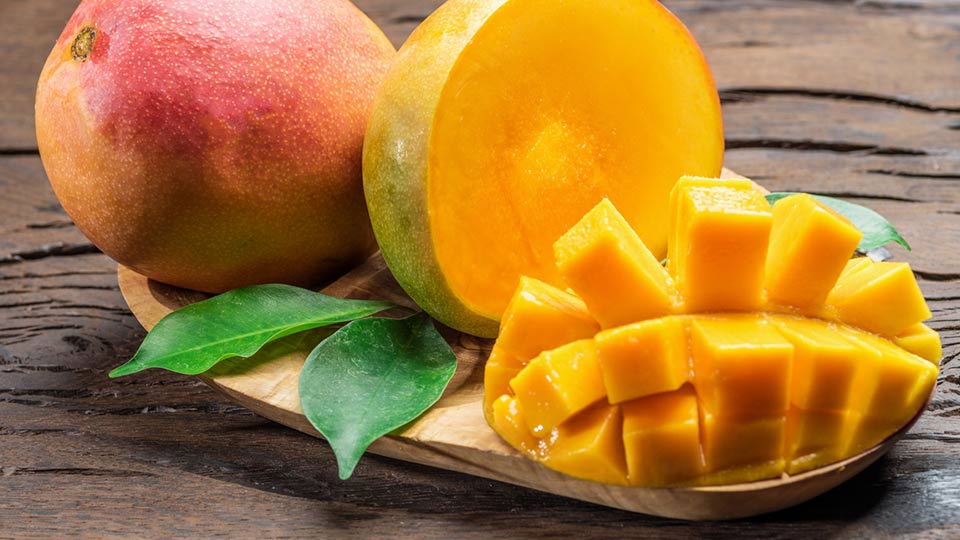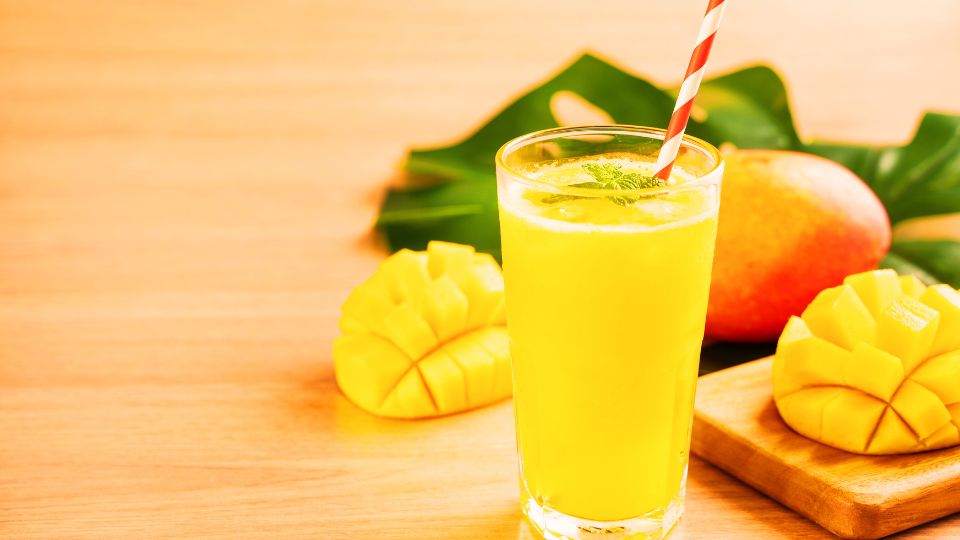Mango and pineapple are two delicious and nutritious tropical fruits that are enjoyed all over the world. Many people wonder whether these two fruits can be eaten together or if they have any adverse effects when combined.
Yes, it is safe to eat mango and pineapple together. In fact, they can make a delicious and nutritious combination in a meal or snack.
In this article, we will explore whether mango and pineapple are compatible foods, their nutritional benefits when eaten together, and some tips on how to best combine them.
Nutritional Content of Mango and Pineapple
Mangoes and pineapples are both tropical fruits that are rich in vitamins, minerals, and other nutrients. When combined, they can create a delicious and nutritious snack or meal addition. Here’s a closer look at the nutritional content of mango and pineapple and how these nutrients may benefit health:
Vitamins
Mangoes are a great source of vitamin A, C, and E. Pineapples are rich in vitamin C and contain smaller amounts of vitamins A and B6.
Minerals
Both mangoes and pineapples contain important minerals like potassium, magnesium, and calcium. Pineapples also contain manganese and copper.
Other Nutrients
Mangoes contain dietary fiber, while pineapples contain bromelain, an enzyme that has been linked to anti-inflammatory effects and improved digestion.
Together, mango and pineapple provide a wide range of nutrients that can contribute to a healthy and balanced diet.
Compatibility of Mango and Pineapple
Mango and pineapple are compatible foods and can be safely eaten together without any negative effects on digestion. However, it is essential to be mindful of the overall diet and not consume too much of any particular food. Overconsumption of fruits can lead to digestive discomfort and bloating.
Different food combinations can affect digestion differently. Some food combinations can improve digestion and nutrient absorption, while others can slow down digestion and cause discomfort.
For example, combining foods high in fiber with those high in protein or fat can slow down digestion and lead to bloating and discomfort. On the other hand, consuming foods rich in vitamin C with iron-rich foods can enhance iron absorption.
Benefits of Eating Mango and Pineapple Together
Mango and pineapple are two delicious tropical fruits that can be enjoyed on their own or in combination with other foods. These fruits not only offer a sweet and tangy flavor but also a range of nutrients that can benefit your health.
Here are some potential benefits of eating mango and pineapple together:
- High in Nutrients: Both mango and pineapple are rich in vitamins, minerals, and antioxidants that can support overall health. Mango is high in vitamin C, vitamin A, and folate, while pineapple is a good source of vitamin C, manganese, and bromelain, an enzyme that aids in digestion.
- Improved Digestion: The combination of mango and pineapple can improve digestion due to the presence of dietary fiber and enzymes. Fiber promotes regular bowel movements, while bromelain helps break down proteins and aids in the digestion of fats.
- Boosted Immune System: Mango and pineapple are both high in vitamin C, which can boost the immune system and help fight off infections.
- Reduced Inflammation: Pineapple contains bromelain, an enzyme that has been shown to have anti-inflammatory properties. This can help reduce inflammation throughout the body and improve overall health.
- Promotes Healthy Skin: Mango and pineapple contain beta-carotene, which is converted to vitamin A in the body. Vitamin A is essential for maintaining healthy skin and can help prevent dryness, acne, and other skin conditions.
While combining mango and pineapple can provide various health benefits, it’s important to note that some individuals may have dietary restrictions or allergies that prevent them from consuming these fruits together. It’s always best to consult with a healthcare professional or registered dietitian before making significant changes to your diet.
Tips for Combining Mango and Pineapple
Choose ripe and fresh fruits
When it comes to mango and pineapple, it’s best to choose ripe and fresh fruits. Ripe mangoes are softer to the touch and have a sweet aroma, while ripe pineapples have a golden color and a sweet fragrance. Choosing fresh and ripe fruits will not only ensure maximum flavor, but will also make them easier to digest.
Combine in a smoothie or fruit salad
One of the easiest ways to combine mango and pineapple is in a smoothie or fruit salad. Simply blend the fruits together with some ice and a liquid base such as coconut water or almond milk to create a refreshing and nutritious smoothie. Alternatively, chop up the fruits and mix them together in a bowl with some shredded coconut or chopped nuts for a tropical fruit salad.
Eat in moderation
While mango and pineapple are both healthy fruits, it’s important to consume them in moderation. Too much fruit can lead to digestive discomfort, particularly for those with sensitive stomachs. Stick to one serving of mango and pineapple per day, and balance your fruit intake with other nutritious foods such as vegetables, whole grains, and lean protein.
Consider food combining principles
Some people may experience digestive discomfort when combining certain foods, while others may have no issues. If you are concerned about food combining principles, it may be helpful to eat mango and pineapple separately or to eat them with other compatible foods. For example, pairing mango with coconut or banana, or pineapple with cucumber or spinach, may be easier on the digestive system.
Conclusion
In conclusion, mango and pineapple are not only delicious but also packed with numerous health benefits. When consumed together, these tropical fruits can provide a variety of essential nutrients and contribute to a balanced and healthy diet.
By following some simple tips for combining mango and pineapple, you can enjoy their delicious taste and reap their health benefits without any digestive discomfort or negative effects.






